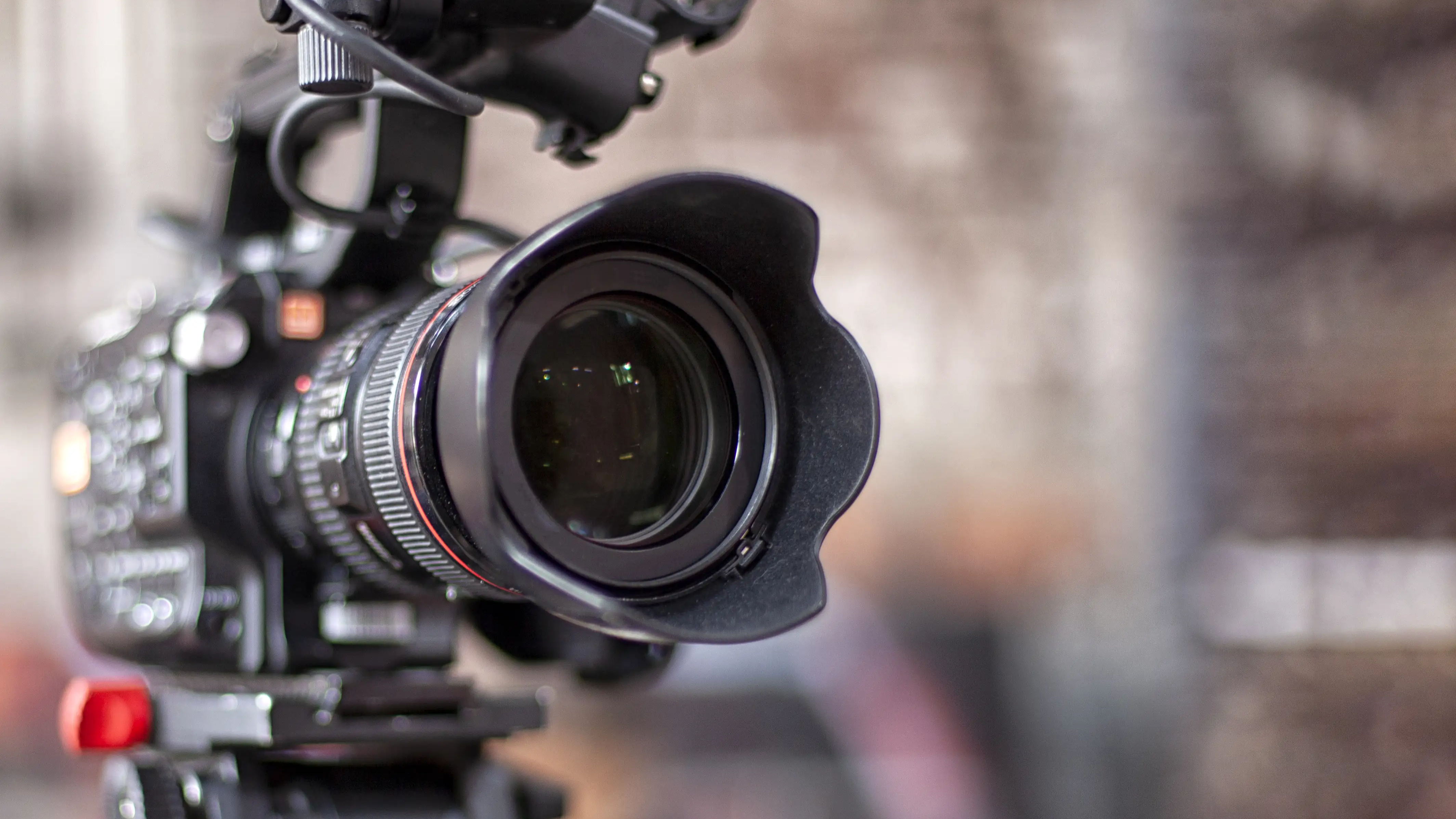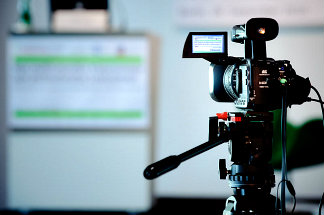The Relevance of Legal Video Clip Depositions in Modern Legal Providers: What You Should Know
Legal video clip depositions have come to be vital in today's legal landscape. They give a multidimensional view of witness testimonies that conventional records just can not match. By catching both non-verbal and verbal interaction, these depositions boost the total understanding of a witness's reputation. The performance of video depositions hinges on numerous aspects, including conformity with legal standards and ideal techniques. Exploring these components reveals their real importance in modern legal services
What Are Legal Video Depositions?
Lawful video clip depositions offer as a vital device in the litigation procedure. They involve videotaping witness testimonies in a video format, catching both non-verbal and verbal interaction. This method permits attorneys to record the demeanor, expressions, and reactions of witnesses, supplying a richer context for the testimony. Typically conducted in a controlled environment, these depositions are led by attorneys who ask concerns while a court press reporter documents the dialogue. The resulting video clip can be critical for test prep work, as it allows attorneys to examine the reliability of witnesses and fine-tune their approaches. In addition, lawful video depositions can be used in different legal contexts, varying from civil disputes to criminal situations. The acoustic and visual aspects of video depositions boost the presentation of evidence, making it a vital element in the contemporary legal landscape. On the whole, they add substantially to the efficiency and performance of legal procedures.

Advantages of Video Depositions Over Conventional Methods
Video clip depositions supply countless benefits compared to typical methods of taking witness statements. One significant advantage is the capability to record both aesthetic and audio aspects, providing a much more extensive record of the witness's statements. This twin layout enhances quality and allows legal experts to reference specific nuances throughout test preparation. In addition, video clip depositions facilitate remote engagement, making it less complicated for witnesses who may be unavailable for in-person looks due to geographical restraints or health and wellness issues.Moreover, video depositions can expedite the overall deposition process, lowering the time and expenses related to traveling and logistics. They likewise improve accessibility, as recorded depositions can be easily shared among lawful teams and referenced at any type of time. This comfort contributes to better situation management and preparation. Overall, video clip depositions represent a modern-day, reliable strategy to gathering witness testaments, lining up with the progressing requirements of the legal occupation.
The Function of Body Language and Tone in Testimonies

In legal video clip depositions, body language and tone play essential roles in conveying a witness's reputation and trustworthiness. Nonverbal signs can supply insights into a witness's emotional state, influencing exactly how their testimony is perceived. Recognizing the influence of these aspects is vital for attorneys and jurors alike when evaluating the integrity of a testament.
Nonverbal Interaction Insights
While spoken interaction is commonly stressed in lawful testimonies, nonverbal hints such as body language and tone play a crucial role in communicating credibility and feeling. Viewers of depositions may keep in mind that a witness's posture, gestures, and face expressions can considerably influence perceptions of reliability. Constant eye contact may indicate self-confidence, while preventing gaze can recommend dishonesty or pain. The tone of voice-- its volume, rate, and pitch-- can give feelings of sincerity or uncertainty. Attorneys need to be in harmony with these nonverbal signals, as they usually provide important context that enhances talked words. Recognizing these subtleties can improve the performance of depositions and affect the result of legal process.
Psychological Tone Influence
The psychological tone communicated throughout lawful testaments considerably affects just how a witness is regarded. Body language, singing inflections, and facial expressions play crucial functions fit the story of a testament. A witness exhibiting confidence via constant eye get in touch with and a calm tone can infuse a sense of integrity and involvement. Conversely, indications of anxiety, such as fidgeting or a shaky voice, might result in hesitation regarding their account. The subtleties of psychological expression can affect the interpretation of truths, making it crucial for lawful specialists to identify these signs. In video clip depositions, the acoustic and visual elements integrate, emphasizing the significance of emotional tone in conveying genuineness and reliability within the lawful process.
Credibility and Trustworthiness
An essential aspect in developing integrity and dependability during testimonies exists in the witness's body language and tone of voice. Observers often rely upon non-verbal signs-- such as eye get in touch with, pose, and motions-- to evaluate a witness's sincerity. For instance, a witness who keeps eye get in touch with and shows open body language might be regarded as even more trustworthy and straightforward than one who avoids eye get in touch with or appears blocked. Additionally, tone of voice plays an important function; a stable, tranquil tone can enhance the credibility of the testimony, while fluctuations in pitch or volume might increase questions. Eventually, the combination of body movement and vocal tone substantially affects exactly how a witness's declarations are received and translated in a lawful context.
Best Practices for Carrying Out Video Depositions
Conducting video depositions calls for careful planning and implementation to ensure a effective and clear discussion of testament. It is crucial to pick a quiet, well-lit place to decrease disturbances and protected optimal video top quality. The devices must be checked ahead of time, consisting of electronic cameras, microphones, try this website and illumination, to stay clear of technical issues throughout the deposition.Next, celebrations entailed have to examine the style and procedures ahead of time, making certain that every person recognizes their functions. The deponent must be informed on the process, consisting of exactly how to react plainly and concisely.Additionally, maintaining a specialist temperament throughout the session is essential. This consists of avoiding talking over one an additional and verifying that all concerns are guided suitably. Lastly, it is critical to videotape the deposition in a format that permits simple playback and evaluation, maintaining the integrity of the testament for future use.
Lawful Considerations and Conformity Issues
Just how do lawful considerations and conformity problems influence the efficiency of video depositions? Lawyers should navigate an intricate landscape of guidelines, making sure that video depositions stick to jurisdictional rules and standards. Conformity with laws concerning privacy, authorization, and taping approaches is essential. For instance, acquiring specific authorization from all celebrations entailed is necessary to prevent legal repercussions.Additionally, the admissibility of video clip proof in court can rest on compliance with procedural demands. Ensuring that the tools made use of fulfills technical requirements is additionally essential, as low quality can threaten the deposition's reliability.Moreover, lawyers must be conscious of any type of specific state regulations that govern video clip depositions, as these can differ greatly. Failure to resolve these factors to consider can not only threaten the honesty of the deposition however additionally influence the total situation technique, ultimately impacting the customer's legal results.
How Video Clip Depositions Effect Court Perception
While video depositions can offer as effective tools in lawful proceedings, their influence on jury assumption is substantial. The auditory and visual components of video clip recordings supply jurors with a more detailed understanding of witness temperament, integrity, and emotional reactions. This multimedia technique can enhance the jurors' capability to assess the dependability of testament contrasted to conventional text-based transcripts.Moreover, video depositions enable jurors to observe body movement, tone of voice, and facial expressions, all of which can impact their analysis of the witness's declarations. The existence of a witness on screen can humanize them, fostering empathy and connection, which might guide jurors' point of views. Alternatively, a witness that shows up unreliable or incredibly elusive on video clip might bring about negative understandings that affect a court's choice. Ultimately, the dynamic nature of video clip depositions plays an important duty in shaping how jurors translate proof and reach their judgments.
The Future of Video Clip Depositions in Legal Practice
As advancements in innovation continue to reshape the lawful landscape, the future of video depositions is positioned for significant evolution. Technologies such as man-made intelligence, online reality, and improved video clip conferencing tools are anticipated to streamline the deposition procedure and boost accessibility. Lawful professionals may utilize AI-driven analytics to analyze witness trustworthiness and instance toughness extra effectively.Moreover, the integration of digital truth could enable juries to experience immersive simulations of depositions, supplying deeper context and understanding. Furthermore, the pattern toward remote depositions is likely to continue, using greater versatility for lawyers and customers alike.As remote job ends up being progressively stabilized, video clip depositions will likely become basic method, lowering prices and time constraints linked with conventional methods. Generally, these technological innovations guarantee to improve the performance, efficiency, and access of video clip depositions in lawful technique, ultimately changing exactly how attorneys get ready for trial.
Often Asked Questions
Just How Much Do Lawful Video Clip Depositions Usually Expense?

Can Video Clip Depositions Be Utilized in Any Type Of Sort Of Situation?
Video depositions can be utilized in various sorts of instances, including civil, criminal, and family law. Their adaptability allows attorneys to existing witness testimonies properly, adjusting to the details requirements of various lawful scenarios.
What Tools Is Required for a Video Deposition?
To conduct a video deposition, crucial tools consists of a top quality camera, microphone, illumination, and a reputable recording gadget. In addition, a computer system with editing and enhancing software program may be necessary for post-production and formatting the final video clip.
For how long Does a Normal Video Clip Deposition Last?
A typical video deposition lasts between two to 4 hours, relying on the complexity of the instance and the number of inquiries postured. Prolonged sessions may take place, however breaks are generally integrated for individual comfort.

Are Video Clip Depositions Admissible in Court?
Video depositions are generally permissible in court, provided they comply with legal standards and guidelines of proof. Their usage improves quality and preserves witness statement, helping in the judicial procedure during tests and hearings. Lawful video depositions have ended up being crucial in today's lawful landscape. Furthermore, lawful video depositions can be used check my source in different legal contexts, varying from civil disputes to criminal cases. In addition, video clip depositions promote remote engagement, making it much easier for witnesses who might be not available for in-person appearances due to geographical restrictions or health and wellness issues.Moreover, video depositions can expedite the overall deposition process, reducing the time and expenses associated with travel and logistics. Ensuring that the equipment made use of meets technological standards is likewise vital, as bad quality can threaten the deposition's reliability.Moreover, lawyers have to be conscious of any type of details state legislations that control video clip depositions, as these can differ considerably. Furthermore, the pattern he has a good point towards remote depositions is most likely to continue, offering higher flexibility for clients and attorneys alike.As remote job comes to be progressively normalized, video clip depositions will likely become typical technique, lowering prices and time restrictions linked with traditional methods.